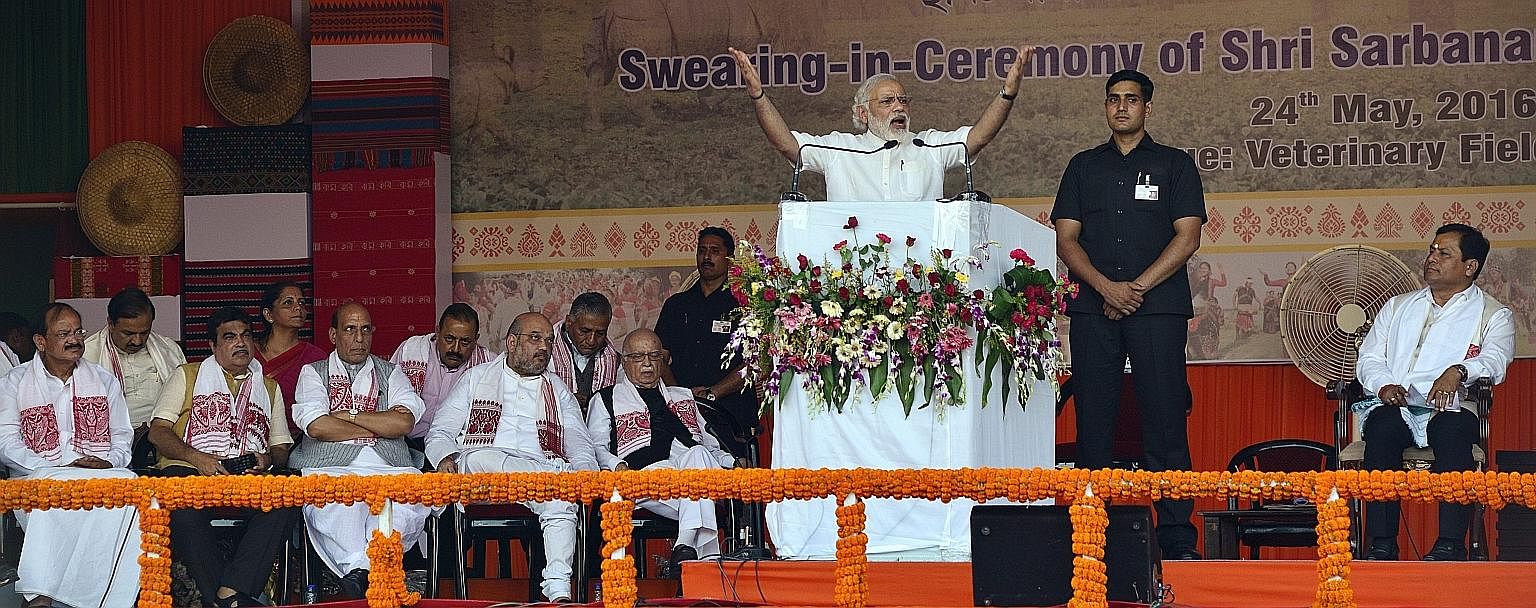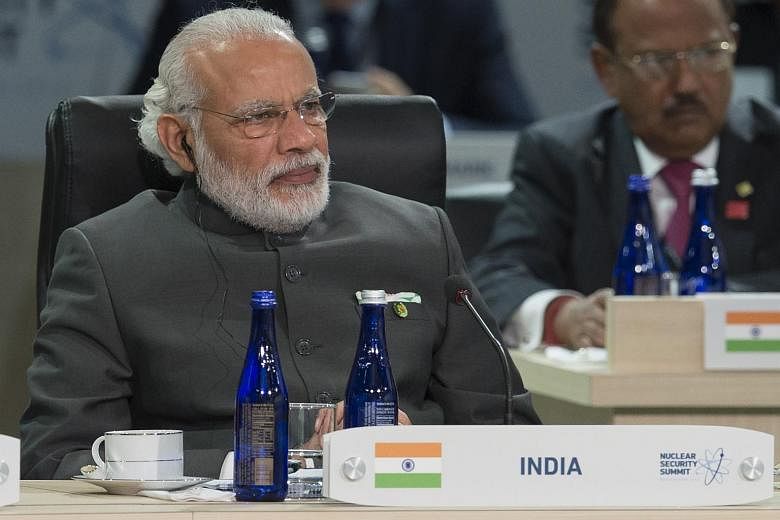As Prime Minister Narendra Modi marks his second year in office today, India's economy is in a sweet spot , his personal approval ratings remain high and a recent win in Assam state elections has re-invigorated his ruling Bharatiya Janata Party (BJP). Yet analysts say that while there have been hits by Mr Modi and his government, there are also some misses.
He has still to create more jobs, improve relations with the opposition and implement a goods and services tax (GST) while ensuring even growth in all sectors, including agriculture which has suffered back-to-back droughts.
Mr Rajeev Malik, a Singapore-based senior economist at brokerage and investment company CLSA, said : "My own sense is that while the government has some important successes, overall it seems to have underestimated the problems with its economic inheritance and overestimated its ability to fix things quickly. The key angle is not whether this government has been better than the previous one... but whether it has done as stunningly well as the eye-popping strength of its election victory.
"The answer would be no, despite some meaningful successes."
Mr Modi scored a landslide win in the 2014 elections on a promise to initiate an economic revival and create jobs. While expectations were high that the government would swiftly roll out an ambitious reform agenda, Mr Modi has taken only incremental steps, such as cautiously opening up sectors like defence and insurance. He has struggled to introduce big-bang reforms, hemmed in by his party's lack of a majority in the Upper House where, for instance, the GST Bill remains stuck.

Nevertheless, his approval ratings are still high - at 74 per cent, according to an instaVaani poll of 10,897 respondents.
A poll by the Centre for Media Studies this month found that 70 per cent supported Mr Modi as prime minister for a second term, although 50 per cent felt he had failed to bring about any substantial change. India's economy is doing well, with 7.6 per cent growth expected, helped by low oil prices which are shrinking the current account deficit and keeping inflation in check for now.
People who deal with the government say they find it more decisive compared with the previous Congress government.
In the past two years, India has announced mega campaigns, among them the Make in India initiative to boost the domestic manufacturing sector. It has also identified areas that need to be tackled, like food inflation, which was 6.3 per cent last month.
The test for the Modi government, say analysts, is in whether it is able to get its initiatives and policies off the ground. "It is all about implementation," said an economist in a private-sector bank who did not want to be named.
On fixing India's inflation, which is around 5 per cent, Mr Malik is less optimistic. He said: "I don't see structural changes that give me confidence that inflation is going to be low and stable for a long time."
Since the BJP came to power in 2014, India has seen a resurgence of Hindu nationalism. The opposition has blamed the Modi government for contributing to a growing climate of intolerance, a charge the BJP has refuted.
Last year, dozens of authors and poets returned the country's top literary award in protest against rising religious intolerance, attacks on writers and the lynching of a man in Uttar Pradesh by a mob who thought he had slaughtered a cow.
"Polarisation is not our government's or party's agenda. Never," Environment Minister Prakash Javadekar said this week, in answer to criticism that Indian society has become polarised.
The Modi government has much to do in the last three years of its five-year term.
Said Mr Rishi Sahai, managing director of investment bank Cogence Advisors: "Right now, we are in a sweet spot while the rest of the world is struggling. But clearly, investors are saying that even if you are in a sweet spot, it doesn't mean money automatically comes to you. They are looking for deeper reforms."

